Summary of 2022 online course releases: neurodiversity, allyship, domestic abuse, how to challenge
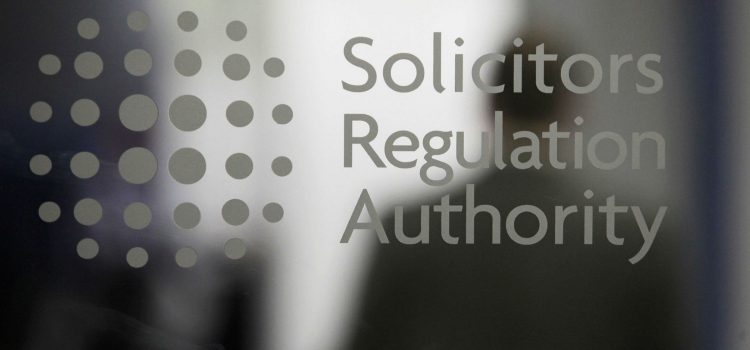
The Solicitors Regulation Authority (SRA) has fined the conveyancing firm, Ferguson Bricknell Solicitors, £20,000 ($24,400) for falling short of its anti-money laundering (AML) obligations. The firm also had to pay £1,350 for the cost of the SRA probe. The fine was issued under a regulatory settlement agreement following an investigation by the SRA.
The investigation found that the firm did not have a compliant, practice-wide, anti-money laundering (AML) risk assessment in place until July 29, 2022, and also failed to fully assess its product/services risks, specifically those associated with conveyancing and controlling client money, which accounted for 75% of its fee income. The risks associated with conveyancing should have been addressed in the assessment provided when the investigation began.
Continue reading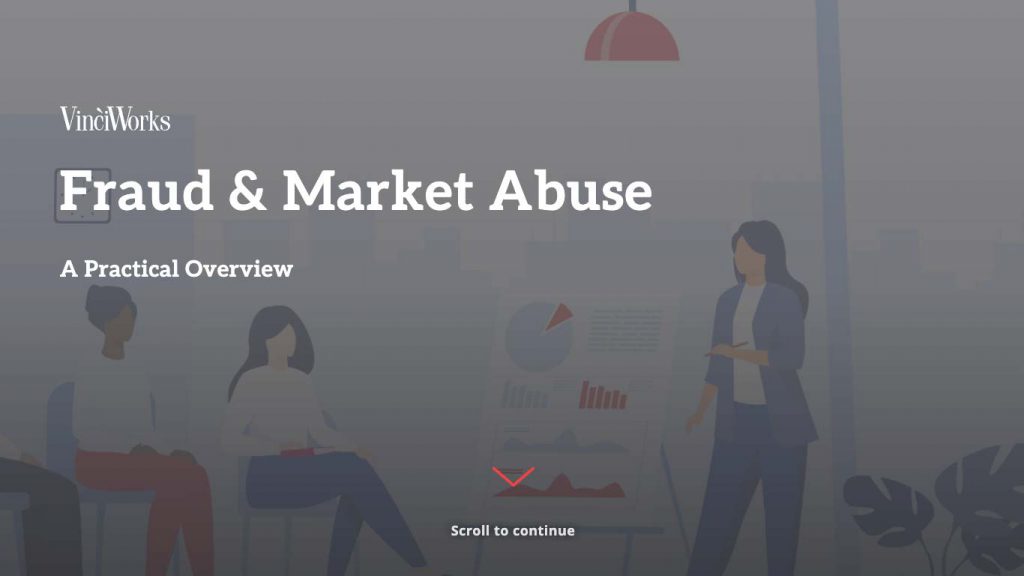
For firms involved in the financial markets, it is fairly easy to get caught up in illegal market abuse practices without even realising it. The temptation is great for staff members to trade on insider information or exploit the firm’s resources to try to manipulate the market. In many cases, the lines between what is acceptable and not are grey and unclear.
The European Union launched Market Abuse Regulation (MAR) legislation in 2016 in order to reduce market abuse and protect investors. MAR requires all EU Member States to criminalise insider trading, market manipulation, and the unlawful disclosure of inside information. The United Kingdom adopted EU MAR into UK law when it left the EU in 2020, but since 2021 has developed its own set of amendments separately from the EU.
Although MAR is an EU regulation, it applies to a wide variety of financial instruments traded anywhere in the world.
Our new course on fraud & market abuse gives staff members the tools to identify different types of fraudulent market activities, know the regulations surrounding them, and prevent potential abuses on an organisational and personal level.
Continue reading
The Financial Conduct Authority (FCA) requires all non-bank payment service providers (PSPs) to perform safeguarding procedures. These procedures are designed to make sure that payments owed to customers are not at risk in the unlikely event that the firm could suddenly go into liquidation or be otherwise unable to make a payment.
The most common safeguarding method, known as the segregation method, requires PSPs to make an immediate and clear separation between the money belonging to the customer and the fees taken by the PSP. This requires a constant process of separating funds into distinct and dedicated bank accounts, as well as recording and reconciling every transaction.
Our new course explains how safeguarding is done and what non-technical staff members need to know about it.
Continue readingThe International Tax Enforcement (Disclosable Arrangements) Regulations 2023 (UK MDR) regulations, were laid before the House of Commons on 17 January 2023. UK MDR will come into force on 28 March 2023. Any UK arrangements entered on or after 28 March 2028 must be reported to HMRC under UK MDR (and not UK DAC6).
HMRC will open a new portal to support UK MDR, however, the DAC6 reporting portal will remain open until the end of April 2023 to allow arrangements entered into before 28 March 2023 to be reported under DAC6. The current DAC6 guidance (which is relevant to MDR for hallmarks D1 and D2) will be updated where necessary to reflect these new regulations.
VinciWorks will support all their UK-based clients in making the transition from DAC6 to UK MDR. HMRC will be joining VinciWorks for a webinar about UK MDR on 15 February 2023.
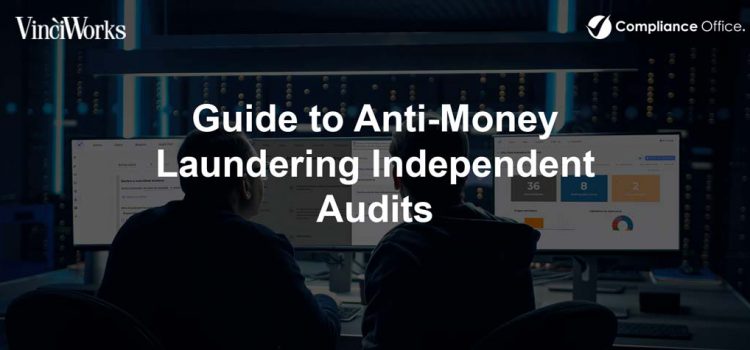
UK law firms subject to the Money Laundering Regulations are required to establish an independent audit function to examine, evaluate and make recommendations regarding the adequacy and effectiveness of their practice’s anti-money laundering and counter-terrorist financing policies, controls, and procedures.
Our guide will help you understand the five main stages of an external independent audit.
Continue reading
“Do I need to report this under RIDDOR?
Under the Reporting of Injuries, Diseases and Dangerous Occurrence Regulations 2013 (RIDDOR), the following work-related accidents must be reported to the Health and Safety Executive (HSE).
Please note that the downloadable checklist, especially in terms of dangerous occurrences, is not an exhaustive list.
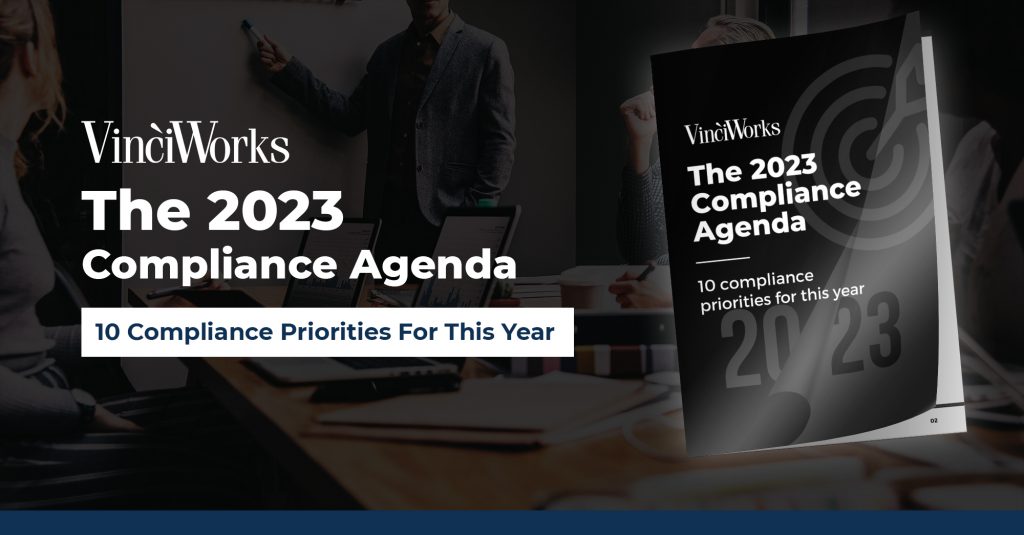
From new ESG regulations to a crackdown on bribery, rapid fluctuations in crypto currency, changes to the regulated sector and the ongoing conflict in Europe demanding a laser-like focus on the supply chain, 2023 looks set to demand even more from compliance professionals.
We have created an in-depth guide to everything compliance in 2023. The guide covers the top ten items you can expect to see in your regulatory inbox, with tips on next steps.
Continue reading
Expected changes to public sector procurement procedures and transparency obligations
If your business is involved in public procurement or bidding for public contracts, you should know about the Procurement Bill which seeks to reform and rationalise the way public procurement works in England, Wales and Northern Ireland. In Scotland, the Bill will cover procurement for reserved functions. The UK Government sought a Legislative Consent Motion but the Scottish Government has rejected this.
Continue reading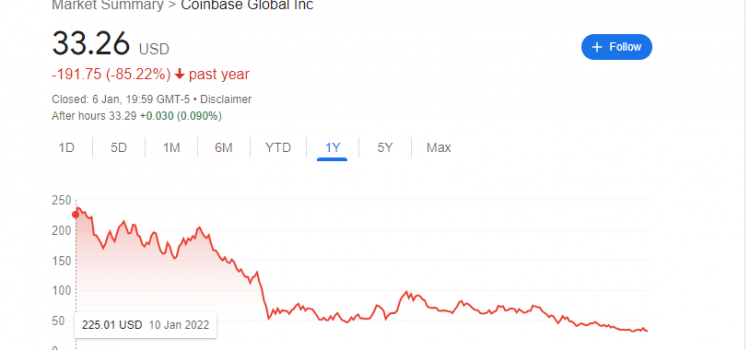
The crypto currency market soundly collapsed in 2022, but crypto currencies linger on. FTX, once valued at $32 billion, went bankrupt as its founder was arrested for perpetrating one of the biggest frauds in history.
The market began to take a nosedive after Celsius Network, a former cryptocurrency lending company, announced it was pausing all withdrawals and transfers between accounts in order to “honor, over time, withdrawal obligations.” Celsius has nearly 2 million customers and held more than $10 billion in assets.
Continue reading